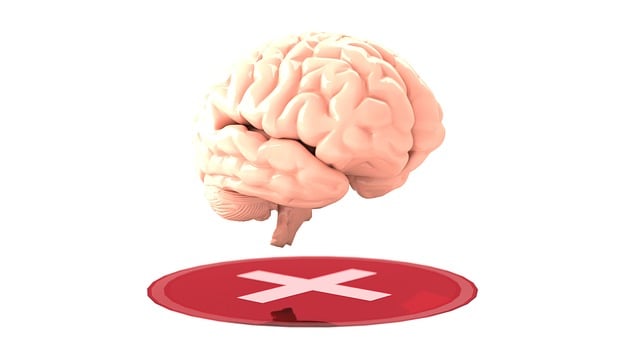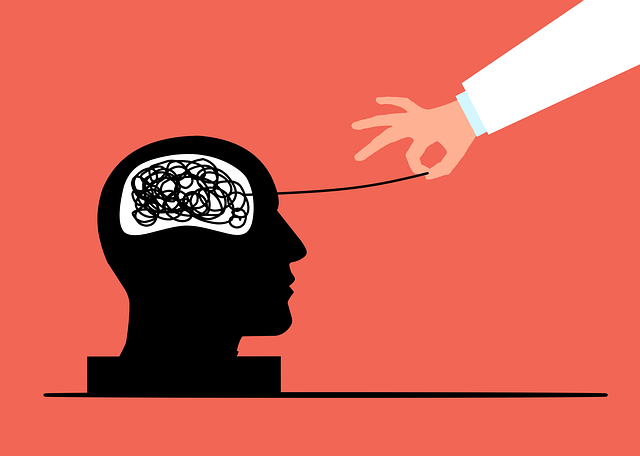The text discusses the significant impact of stigma on mental health, hindering access to support for many individuals. Lakewood First Responders Therapy (LFRT) stands out as a pioneering initiative by providing safe spaces and integrated mental health services for first responders, reducing judgment and enhancing trust. LFRT's comprehensive approach includes education, workshops, support groups, and policy advocacy. Through these efforts, they aim to destigmatize mental illness, improve access to care, and foster more inclusive communities, ultimately promoting better mental well-being on a broad scale.
Mental illness stigma remains a significant barrier to recovery, often preventing individuals from seeking essential help. This article explores targeted efforts to reduce this pervasive shame, focusing on innovative initiatives like Lakewood First Responders Therapy (LFRT). We delve into LFRT’s role in destigmatizing mental health issues through community engagement and personalized support. Additionally, we examine the impact of education, support groups, policy advocacy, and accessible care in fostering a more inclusive and supportive society for those battling mental illness.
- Understanding Stigma: Barriers to Seeking Help
- The Role of Lakewood First Responders Therapy in Breaking Down Stigma
- Educating Communities: Disseminating Accurate Information
- Support Groups and Peer Mentorship: Empowering Recovery
- Policy Changes and Advocacy: Systemic Transformation for Mental Health Care
Understanding Stigma: Barriers to Seeking Help

Stigma surrounding mental illness is a significant barrier to individuals seeking help and support. Often, people struggling with their mental health avoid reaching out for assistance due to fear of judgment, discrimination, or societal rejection. This internalized shame can be particularly pronounced in communities where open discussions about mental wellness are less common. For instance, in Lakewood, First Responders Therapy has been instrumental in breaking down these barriers by providing a safe space for first responders to discuss and manage their mental health challenges without stigma.
Understanding the impact of stigma is crucial in developing effective strategies for its reduction. Education plays a vital role; raising awareness about mental illness can help normalize conversations and dispel myths. Additionally, encouraging open dialogues, especially within at-risk groups, can foster a culture where seeking therapy or counseling is seen as proactive self-care rather than a sign of weakness. Depression prevention initiatives, risk management planning for mental health professionals, and even engaging in production of a mental wellness podcast series can all contribute to creating a supportive ecosystem that reduces stigma and encourages individuals to prioritize their mental wellness.
The Role of Lakewood First Responders Therapy in Breaking Down Stigma

Lakewood First Responders Therapy plays a pivotal role in breaking down the stigma surrounding mental illness within communities. This innovative approach prioritizes early intervention and accessible support, addressing a critical gap often overlooked in traditional mental health services. By integrating mental health professionals into emergency response teams, Lakewood First Responders Therapy ensures that individuals experiencing crises receive immediate, compassionate care without judgment.
This integrated model enhances communication strategies between first responders and individuals in distress, fostering trust and understanding. Furthermore, it promotes self-care practices for the therapists themselves, enabling them to effectively support others while managing their own mental well-being. Such comprehensive risk management planning for mental health professionals not only ensures the safety of both parties but also improves the quality and longevity of care provided.
Educating Communities: Disseminating Accurate Information

Educating communities about mental illness is a powerful tool in reducing stigma and fostering understanding. By disseminating accurate information, we can combat misinformation and dispel myths that often surround mental health conditions. Lakewood First Responders Therapy plays a vital role in this effort by providing educational resources to the public and local healthcare providers. They organize workshops and seminars focused on Mental Health Awareness, ensuring that community members are equipped with knowledge about various disorders, their symptoms, and available treatment options.
These initiatives also emphasize the importance of Cultural Competency Training for Healthcare Providers. By integrating this training into their programs, Lakewood First Responders Therapy encourages professionals to be more sensitive to diverse cultural beliefs and practices related to mental health. Such efforts are crucial in preventing Burnout among healthcare workers while providing better care for individuals from different backgrounds who might face unique challenges in seeking therapy.
Support Groups and Peer Mentorship: Empowering Recovery

Support Groups and Peer Mentorship play a pivotal role in reducing the stigma surrounding mental illness. By fostering an environment where individuals share their experiences and offer encouragement, these groups empower those struggling with their mental health. Members gain valuable coping skills development and stress management strategies from their peers, breaking down barriers and promoting understanding.
Lakewood First Responders Therapy, for instance, is a notable organization that offers peer mentorship programs tailored to first responders, who often face unique challenges in maintaining their mental wellness. Through these initiatives, participants learn to navigate their struggles collectively, enhancing resilience and overall well-being. Such support systems not only facilitate recovery but also encourage open conversations about mental health issues, ultimately contributing to a more inclusive and supportive society.
Policy Changes and Advocacy: Systemic Transformation for Mental Health Care

Mental illness stigma reduction requires systemic changes and advocacy efforts to transform mental health care. Policy changes play a pivotal role in creating an environment that prioritizes mental wellness. This includes updating laws and guidelines to ensure fair treatment and access to quality care for individuals facing mental health challenges. For instance, programs like Lakewood First Responders Therapy model innovative approaches by integrating mental health services into emergency response systems, breaking down barriers between acute care and long-term support.
Advocacy groups and community initiatives contribute significantly by raising awareness, challenging stereotypes, and promoting understanding. Mental Wellness Journaling Exercise Guidance, Conflict Resolution Techniques, and Mental Health Education Programs Design are valuable tools in this process. By educating the public and professionals alike, these efforts foster empathy, encourage early intervention, and reduce the societal isolation often experienced by those dealing with mental illness. Such systemic transformations are crucial steps towards creating a more inclusive and supportive society.
In addressing mental illness stigma, a multifaceted approach is necessary. As seen with initiatives like Lakewood First Responders Therapy, targeted interventions can significantly reduce barriers to seeking help. Coupled with community education on accurate information dissemination and supportive environments fostered through peer mentorship and advocacy for policy changes, these strategies work synergistically to create a more inclusive and understanding society. By empowering individuals with mental health conditions, we can ensure improved access to care and enhanced well-being for all.














